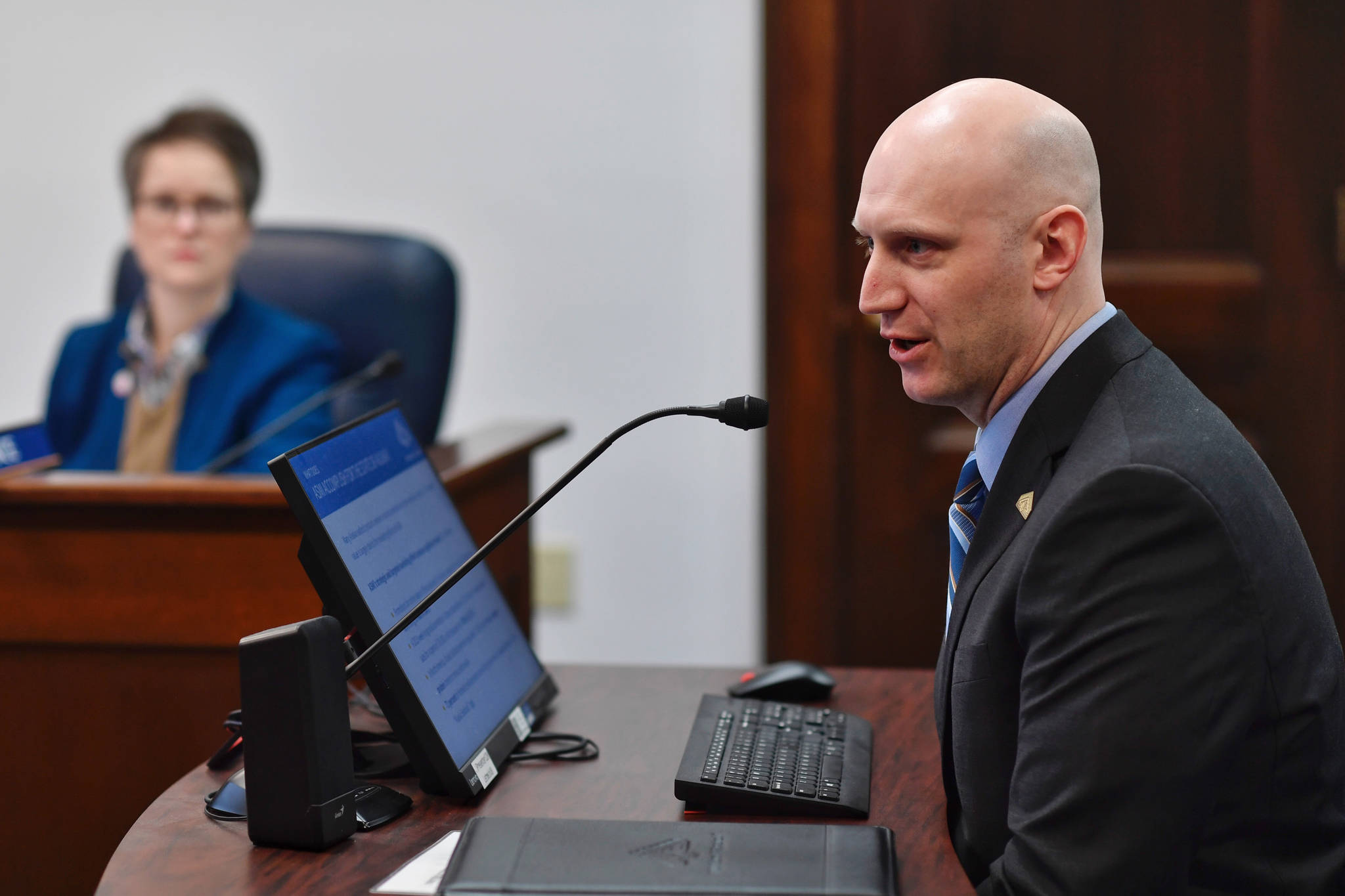Alaska’s fishing industry provides more jobs than any private sector in the state. On Tuesday, the House Special Committee on Fisheries received an update from the Alaska Seafood Marketing Institute.
The tariff war with China remains a concern. The Alaska Seafood Marketing Institute put a lot of effort into selling Alaska’s seafood to China, said Jeremy Woodrow, the interim executive director of the ASMI. For every $10,000 spent on marketing in China, the Alaska seafood industry gets $1 million. But with the tariff war between the U.S. and China, Woodrow said, “We are expecting big drop offs in our Chinese market.”
However, Woodrow had plenty of positive news to report. In December, U.S. Sen. Dan Sullivan was able to add a provision to the Farm Bill that would require Alaska seafood pollock to be used in fish sticks in American school lunches. Previously, fish sticks in American school lunches were comprised of Russian pollock. Woodrow said this would equate to about $30 million a year. Alaska pollock makes up the bulk of the Alaska’s fishing harvest volume: 57 percent of the 5.9 billion pounds of seafood harvested in a year.
Ukraine has been a growing market for Alaska seafoods ever since the Russians placed an embargo on U.S. fish about five years ago, Woodrow said this market has been steadily growing.
“It’s not a giant market, but we’re trying to expand our markets,” Woodrow said. “You know how China tariffs have impacted our markets. You don’t want to have all your eggs in one basket.”
Alaska Seafood exports 60 percent of its products to foreign countries, according to Woodrow. He said Alaskans are not the people buying Alaska seafood, because Alaskans typically catch their own fish.
AMSI is a public-private entity that receives federal and commercial dollars to promote Alaska seafood in markets outside of Alaska. Commercial fishing members pay a fee to have their products promoted and use the Alaska seafood label, too. The State of Alaska was contributing more than $4,000 in Fiscal Year 2016, but that number dwindled until the state quit contributing to AMS in fiscal 2019.
The fisheries committee consists of Reps. Sarah Vance, R-Anchorage; Geran Tarr, D-Anchorage; Louise Stutes, R-Kenai; Chuck Kopp, R-Anchorage; Jonathan Kreiss Tomkins, D-Sitka; and Lance Pruitt, R-Anchorage.
Contact reporter Kevin Baird at 523-2258 or kbaird@juneauempire.com. Follow him on Twitter at @alaska_kev.

